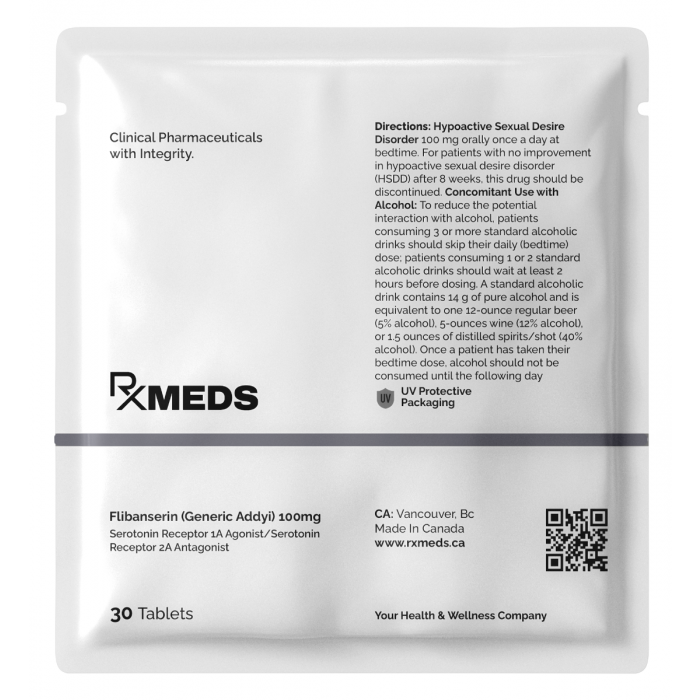 |
|
5 Customer Review
I’m thrilled with the results of this product! My Metformin arrived incredibly fast, the discreet packaging was perfect!
Checkout using your account
Checkout as a new customer
Creating an account has many benefits:

Sold Out :
Flibanserin (Addyi), marketed under the brand name Addyi, is a prescription medication approved for the treatment of premenopausal women with hypoactive sexual desire disorder (HSDD), a condition characterized by a lack of sexual desire that causes distress. It works by affecting serotonin receptors in the brain, helping to restore a balance among certain neurotransmitters, specifically serotonin, dopamine, and norepinephrine, which play a role in sexual interest and arousal.
Flibanserin is categorized under the US FDA's "Not Assigned" pregnancy risk category, as the FDA has shifted to providing more detailed risk summaries instead of using A, B, C, D, and X labels. Currently, there are no adequate and well-controlled studies in pregnant women to definitively assess the risks of flibanserin use during pregnancy. However, animal studies have shown that at high doses—significantly above the maximum recommended human dose (MRHD)—flibanserin can cause fetal harm in the presence of maternal toxicity. Specifically:
Despite these findings, there is no conclusive data on the drug's effects in human pregnancy, so healthcare providers should weigh the benefits against potential risks before prescribing flibanserin to pregnant women.
Flibanserin is not recommended for use during breastfeeding due to unknown effects on milk production or the breastfed infant. While it is unknown if flibanserin passes into human breast milk, studies in animals indicate that it is excreted into milk. Given the potential for serious adverse effects, such as sedation in the breastfed infant, healthcare providers advise against flibanserin use for breastfeeding mothers.
The recommended dosage of flibanserin is 100 mg, taken orally once daily at bedtime. It is essential to take the medication at bedtime due to the risk of adverse reactions like low blood pressure, dizziness, and fainting, which may be exacerbated if taken during waking hours. Additionally, patients should avoid alcohol while using flibanserin, as it can significantly increase the risk of severe side effects.
Consultation with a healthcare provider is crucial to ensure flibanserin is a suitable treatment option, considering each patient's unique health circumstances. This includes careful evaluation of pregnancy or breastfeeding status, as well as adherence to prescribed dosage instructions and precautions regarding alcohol use.